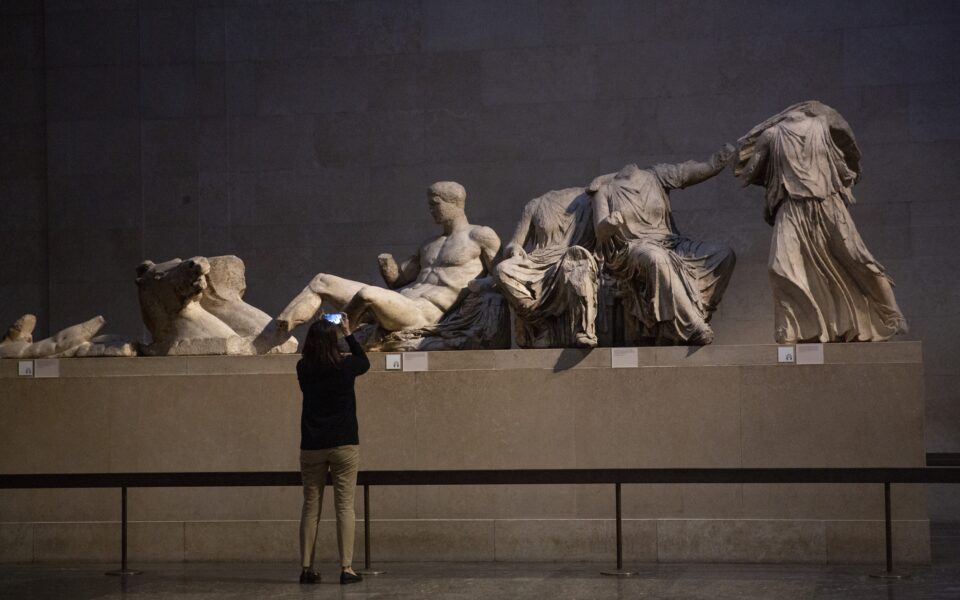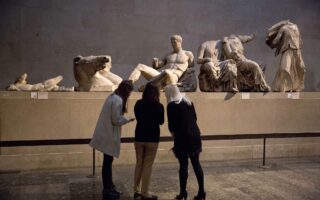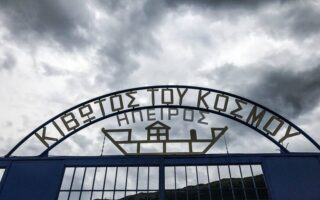The Parthenon Sculptures. Now what?

Since August 2019, when the Greek Prime Minister Kyriakos Mitsotakis announced that he would ask the then prime minister of Great Britain for the loan of the “Elgin Marbles,” and up until today, the government has been following the same policy for the reunification of the Parthenon Sculptures: negotiating government to government and government to museum. In view of the upcoming parliamentary elections, the government has been trying to spread optimism, with information on progress in this matter either directly given or leaked. The reality, however, is that this strategy has not borne fruit. Those who thought that the prime minister’s visit to King Charles would have any effect are ignoring the British reality. King Charles cannot wave his scepter like a medieval king and impose whatever view he may have on the matter. On the contrary, any attempt to invite royal intervention on any issue offends and annoys the British government. So the Greek government will go into the upcoming election with the fuzzy argument that it has covered 90% of the way and, if it stays in power, it will go all the way. Blessed are those who have not seen, and have believed.
In my article in Kathimerini on March 21, 2021, I proposed another strategy: Instead of presenting the reunification of the sculptures as a national Greek issue handled exclusively by the government, it should be presented in its true dimensions as an issue affecting a monument of global importance that concerns the whole of civilized humanity. As such, it can be dealt with through negotiations between one museum (Acropolis) and another (British). I wrote: “The proposal is simple: that the Committee on Cultural Affairs of the Greek Parliament should appoint a committee of Greek and foreign experts and personalities to approach the British Museum on behalf of the Acropolis Museum to examine the conditions under which the reunification of the sculptures could be possible. Given that any government would want to triumph over a success and any opposition would be looking for reasons to criticize the government, the appointment of a committee would have to be made by an increased majority to ensure cross-party support.
At a time of increasing polarization, it would be a real gift to Greek citizens to have a broader climate of understanding on this issue, especially in the year of the anniversary of Greek independence.” If we replace “anniversary year” with “election year,” nothing else has changed.
According to a famous aphorism attributed to Einstein, insanity is doing things over and over again and expecting different results. It is therefore justified to suggest I’m insane, given that I have repeated this proposal in numerous articles and interviews both in the Greek and the international press, always to no avail. But the Greek government is also exposed to suspicion of insanity when it repeats the same action with the same result: Hopes are raised but the sculptures remain stuck in London.
Those who thought that the prime minister’s visit to King Charles would have any effect are ignoring the British reality
Despite the government’s refusal to consider another approach to the issue, my original proposal was posted on the website of the British Committee for the Reunification of the Parthenon Sculptures and was recently adopted by the president of the Association of Greek Archaeologists. I therefore repeat it, together with my view that the only clear, permanent, morally acceptable and scientifically sound solution is the unconditional donation of the Parthenon Sculptures; not exchange, not loan, not gradual reunification, not conditional possession. It is the solution that was chosen for a fragment of the frieze donated in 2006 by Heidelberg University to the Acropolis Museum. This was the first Parthenon fragment to be reunited with the sculptures in the Acropolis Museum. Once the British Museum makes an unconditional donation of the sculptures, then the way may be opened for a collaboration between the country’s regional museums and the British Museum for the promotion of Greek culture through periodic exhibitions.
Angelos Chaniotis is professor of ancient history and Classical studies at the Institute of Advanced Studies.




